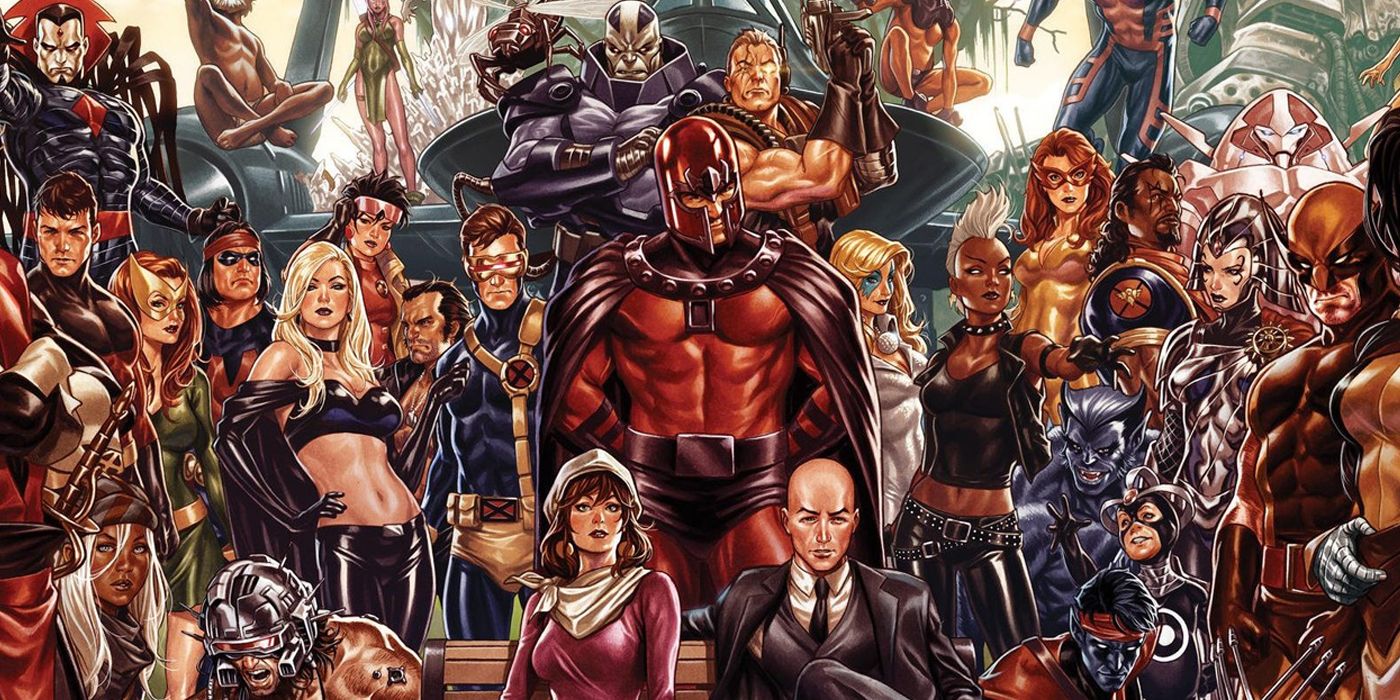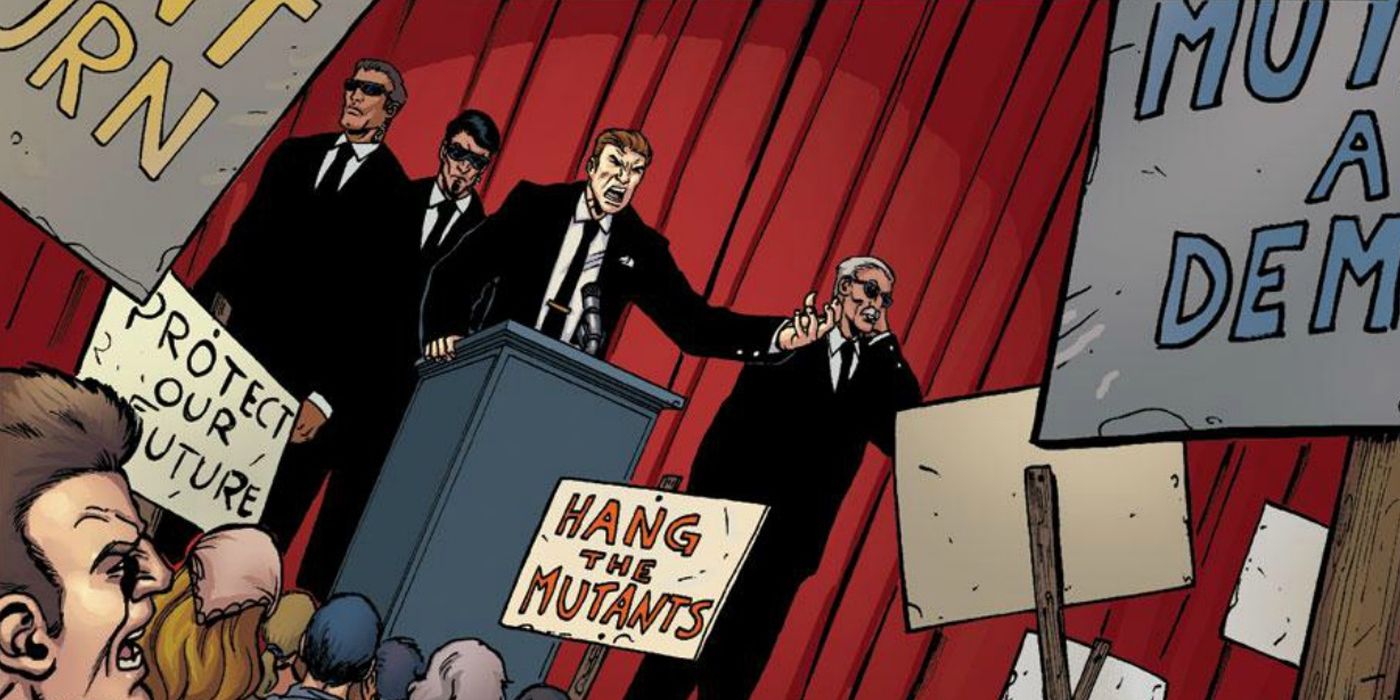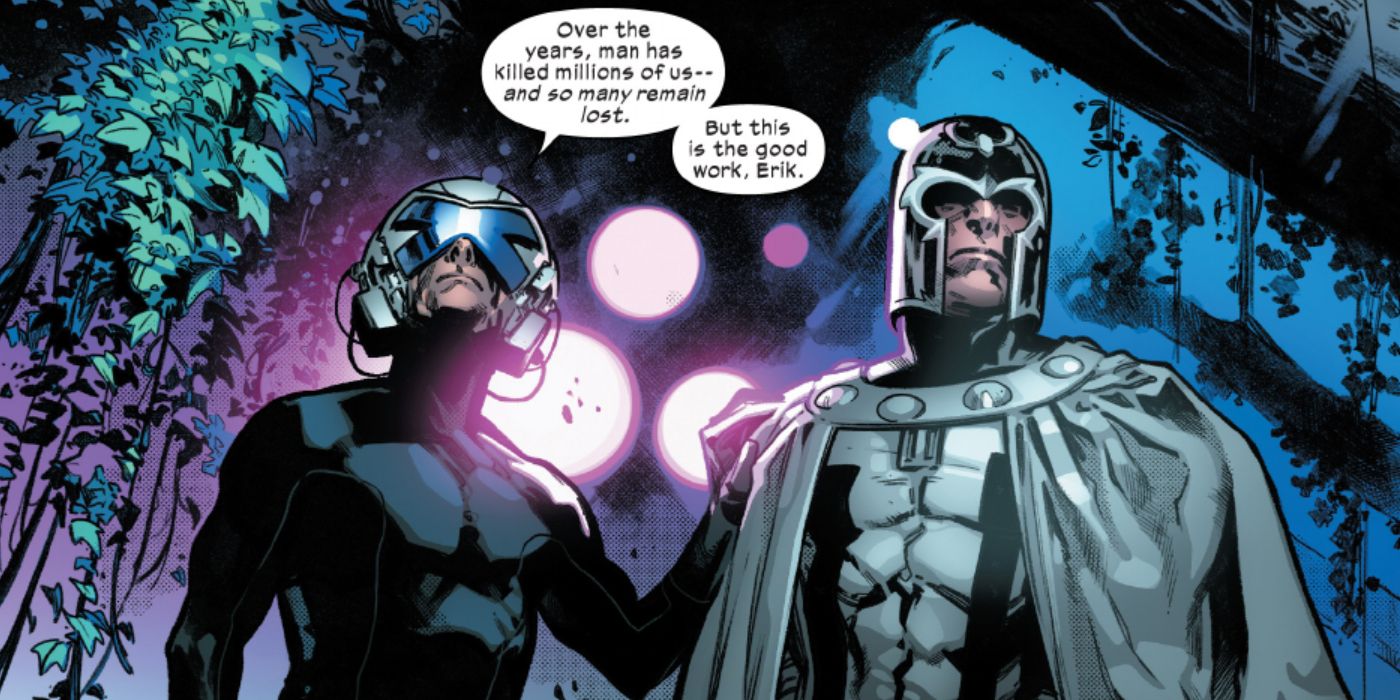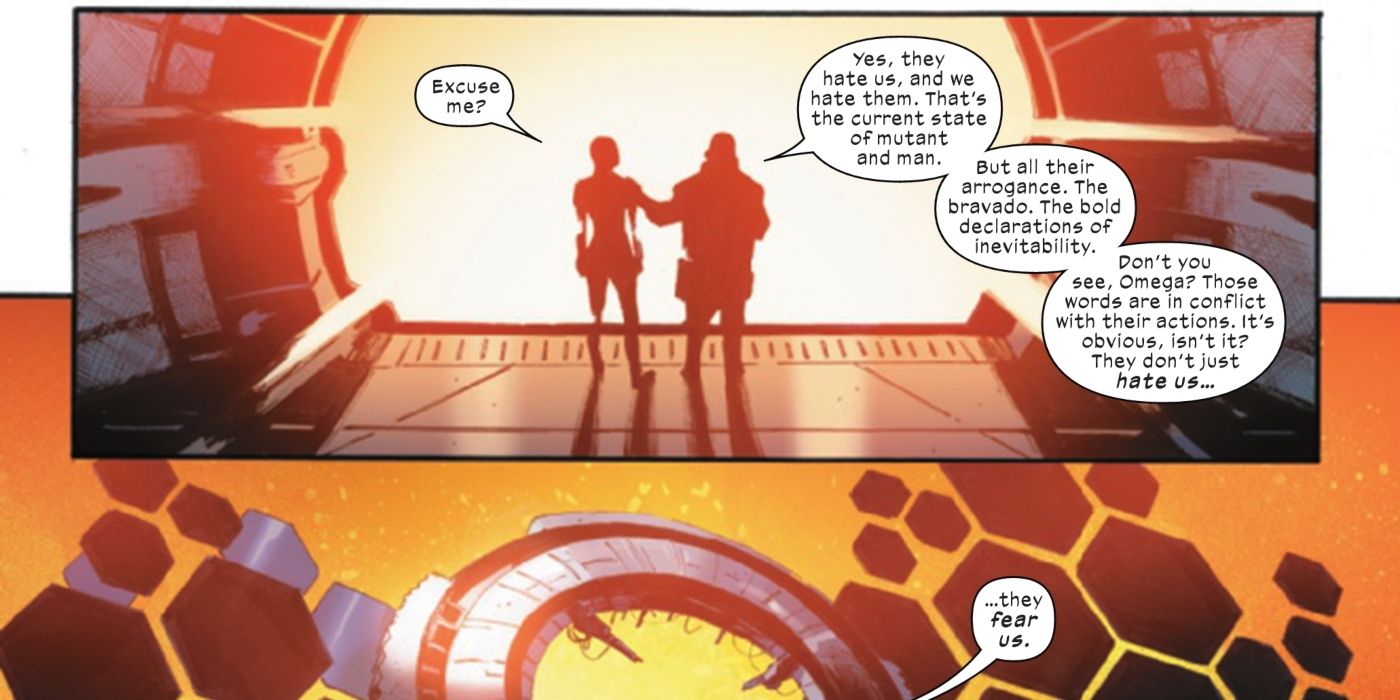
WARNING: The following contains spoilers for X-Men #20 by Jonathan Hickman, Francesco Mobili, Sunny Gho and VC's Clayton Cowles, on sale now.
Traditionally, when it comes to mutant/human relations, humans have persecuted the mutants of the Marvel Universe out of fear and hatred. The X-Men, lead by the dream and morals of Professor Charles Xavier, fought against the prejudice brought against them in hopes of fostering an age wherein humans and mutants could peacefully co-exist.
In recent times, however, the tables have turned, with Marvel's mutants becoming more like humans than they care to admit.

Hatred and fear has historically been the norm for mutants. Although the X-Men were formed to fight for both humans and mutants, they've generally been met with distrust and persecution. Mutantkind as a whole has also faced many trials at the hands of humans.
The Sentinels, along with hate groups such as the Purifiers, Friends of Humanity, and several others, have long attempted to hunt and eradicate mutants from the planet. Even Genosha, which eventually became a paradise for mutants, was founded on mutant slave labor. This is only some of the suffering that mutants have endured at the hands of humankind, not even considering tragedies such as Genosha's destruction and the mutant decimation.

Ever since 2019's House of X #1, by Jonathan Hickman and Pepe Larraz, mutantkind has been on the upswing. The mutant species finally united on the mutant island-nation of Krakoa. Alongside Professor X and Magneto, Moira MacTaggert, aka Moira X, secretly conspired to bring about the united mutant front that is now known as Krakoa. After reincarnating in nine previous lives, where mutants always lost to humans and machines, Moira returned to her tenth and final life with a plan to unite all of mutantkind.
Krakoa offered several benefits, such as gateways that only mutants could access and Krakoan habitats that terraform different environments around the world. Krakoa also developed its own language and an independent government body called the Quiet Council. Resurrection protocols were created, so death would never be permanent for mutants. In exchange for recognizing Krakoan sovereignty, human nations were provided drugs to cure neurological diseases, extend the human lifespan and act as powerful antibiotics. For the first time, mutants were united, embracing their place as the next stage in evolution.

In X-Men #20, by Jonathan Hickman and Francesco Mobili, Doctor Davos of the anti-mutant group Orchis, suggests that mutants don't just hate humans now, but they also fear humanity in much the same way humans have for so long. While it may not entirely be true that mutants have simply become the new humans, this idea has some merit considering how proactive Marvel's Mutants have been in protecting their species from humans since Krakoa's formation.
In this issue, Professor X and Magneto sent Mystique to prevent the creation of Nimrod, the Super-Sentinel. To do so, Mystique created a small black hole in the Orchis space station. Employing Mystique, a notorious villain, to do their dirty work, Moira, Xavier and Magneto are all acting out of fear. This fear is of humans and their machines, which destroyed mutantkind in Moira's past lives.
In trying to stop problems before they even arise, the mutant leaders have become more like humans than they know. The mutant leaders are trying to destroy machines just as humans have tried to destroy mutants in the past, out of fear for the future. Of course, this fear is understandable, as mutants have previously been persecuted by humans through machinery. Still, acting out of fear tends to create more problems for mutants, just as it has for humans.
This isn't to say that all mutants have become like humans. Mutants like Cyclops are a great example, since he's reformed the X-Men as a team of heroes who fight for mutants and humans alike. Even though mutants are prospering, and more powerful than ordinary humans, they're still a minority group, rather than a new majority who are persecuting the rest of the world.
The true issue with mutantkind, at the moment, lies in its leadership. Moira, Professor X and Magneto all act out of fear for the future, and they all act in secret. The general population, however, seems content to live in peace for a change. Additionally, the X-Men are now a democratically elected team, giving Krakoa more transparency than Professor X or Magneto have provided thus far. With the coming "Inferno" promising to expose Krakoa's biggest secrets, it may be time for the older generation to step down, handing the reigns of mutantkind over to younger leaders who have a kinder and better vision for the future of their kind.
0 Comments